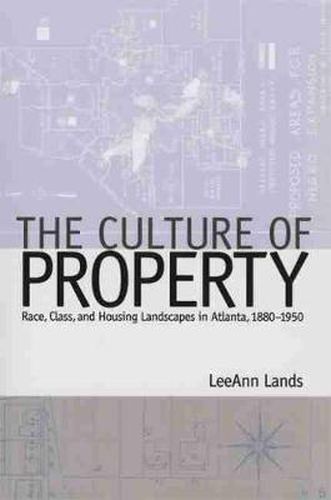Readings Newsletter
Become a Readings Member to make your shopping experience even easier.
Sign in or sign up for free!
You’re not far away from qualifying for FREE standard shipping within Australia
You’ve qualified for FREE standard shipping within Australia
The cart is loading…






This is a history of the cultural biases undergirding housing segregation. This history of the idea of ‘neighborhood’ in a major American city examines the transition of Atlanta, Georgia, from a place little concerned with residential segregation, tasteful surroundings, and property control to one marked by extreme concentrations of poverty and racial and class exclusion. Using Atlanta as a lens to view the wider nation, LeeAnn Lands shows how assumptions about race and class have coalesced with attitudes toward residential landscape aesthetics and home ownership to shape public policies that promote and protect white privilege. Lands studies the diffusion of property ideologies on two separate but related levels: within academic, professional, and bureaucratic circles and within circles comprising civic elites and rank-and-file residents. By the 1920s, following the establishment of park neighborhoods such as Druid Hills and Ansley Park, white home owners approached housing and neighborhoods with a particular collection of desires and sensibilities: architectural and landscape continuity, a narrow range of housing values, orderliness, and separation from undesirable land uses - and undesirable people. By the 1950s, these desires and sensibilities had been codified in federal, state, and local standards, practices, and laws. Today, Lands argues, far more is at stake than issues of access to particular neighborhoods, because housing location is tied to the allocation of a broad range of resources, including school funding, infrastructure, and law enforcement. Long after racial segregation has been outlawed, white privilege remains embedded in our culture of home ownership.
$9.00 standard shipping within Australia
FREE standard shipping within Australia for orders over $100.00
Express & International shipping calculated at checkout
This is a history of the cultural biases undergirding housing segregation. This history of the idea of ‘neighborhood’ in a major American city examines the transition of Atlanta, Georgia, from a place little concerned with residential segregation, tasteful surroundings, and property control to one marked by extreme concentrations of poverty and racial and class exclusion. Using Atlanta as a lens to view the wider nation, LeeAnn Lands shows how assumptions about race and class have coalesced with attitudes toward residential landscape aesthetics and home ownership to shape public policies that promote and protect white privilege. Lands studies the diffusion of property ideologies on two separate but related levels: within academic, professional, and bureaucratic circles and within circles comprising civic elites and rank-and-file residents. By the 1920s, following the establishment of park neighborhoods such as Druid Hills and Ansley Park, white home owners approached housing and neighborhoods with a particular collection of desires and sensibilities: architectural and landscape continuity, a narrow range of housing values, orderliness, and separation from undesirable land uses - and undesirable people. By the 1950s, these desires and sensibilities had been codified in federal, state, and local standards, practices, and laws. Today, Lands argues, far more is at stake than issues of access to particular neighborhoods, because housing location is tied to the allocation of a broad range of resources, including school funding, infrastructure, and law enforcement. Long after racial segregation has been outlawed, white privilege remains embedded in our culture of home ownership.